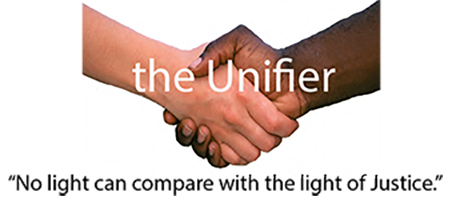Conversations on Race
December 12, 2021
In September of 1990, I moved to Evanston, Illinois to accept a job at the Bahá’í Publishing Trust of the United States. That was the year that I met Morris Taylor. I left Evanston in August 1995 to accept the position of general manager of the Bahá’í Publishing Trust of Taiwan and lost contact with Morris for many years, though we have been ‘friends’ on Facebook for a number of years. Morris texted me in 2020 to discuss my new book Ponder: Musings on the Art of Bahá’í Meditation. We followed that text communication with a lengthy phone call to discuss writing and authorship. Morris is the author of several published books, most of which are geared towards the youth market. He is currently working on a trilogy in the Urban Fantasy Action Adventure genre. It’s working title is The Devil and the Magi.
2020 saw me working on setting up this blogsite on which I envisioned discussing important social issues of the day and involving various friends who are working in the fields of Race Relations, Gender Equality, Environmentalism, Justice, etc. My vision was to get as many of these highly educated and motivated people contributing to the blogsite as possible so that it wasn’t a product of my mind alone but was a platform for multiple voices on these important subjects.
That’s when I reached out to Morris to see if he would be interested in being a contributing post author. In discussions with Morris we decided that this would be a good way of getting his feet wet. His contributions might begin and end with this one post, or I might be able to coax more out of him at a later date.

“Morris, I know you as my friend, an educator, an author, and a Bahá’í. In recent conversations I’ve learned you’re a father as well. Tell me, how would you describe yourself?”
“I think like most adults, I recognize that I’m constantly in the process of “becoming.” At present, I suppose that your description is as good as any. As an adult, my personal mission and aspiration has always been to be a facilitator of personal growth and discovery.”
“When last we spoke, you mentioned this group that you belong to where you discuss race issues. Are you the founder of the group, and what is its name?”
“I am the founder of the group and I call it ‘Conversations on Race.’ We started shortly after the killing of George Floyd, an event that affected me very viscerally. The deep outrage and grief I felt needed a positive outlet. I decided that trying to assembly a group of like-minded neighbors who wanted to help bring about change was something I might do locally that could potentially affect a lot of individuals, their families, social circles, and communities.”
“Morris, tell me, What is your goal or focus for this group?”
“Our focus has three prongs –
- to learn as much as we can about the root causes of racism,
- to share experiences and concerns and finally
- to discuss ways that each of us can start to make differences as individuals, parents, and community members. Ultimately, though, we want to have a positive and healing influence in our country. As part of the learning process, we watch videos, share articles, and read books, all to broaden and expand our understanding of this very difficult issue.”
“Does the group sponsor or support social activities such as working with food banks, registering people to vote, helping the homeless, etc.?”
“We started in July of last year (2020) and we have spent the last several months learning more about this subject and each other. As a group, we are not really ‘social activists’. Instead, each participant is encouraged to leverage what they learn in the ways that they feel will have the most positive impact. Having said that, we are always looking for ways to educate and engage others. To this end, we are planning a children’s program on race and prejudice, and hope to recognize one or more local high school students for their efforts to model and promote freedom from racial prejudice in their own lives.”
“So, you started in 2020 shortly after George Floyd was killed. How many group members did you have in the beginning?”
“We started with ten folks and now have approximately thirty, plus almost everyone is actively participating in the activities.” We all see the need for change and want to be part of that process.”
“Earlier you mentioned the group was made up of like-minded neighbors. Did you know these neighbors prior to forming the group?”
“No! There is an electronic newsletter called ‘Next door Digest’. I believe it is a nationwide business. When you join, they put you into a specific ‘neighborhood’ based on your residential address and this group is able to post questions, share neighborhood concerns, recommend resources, etc. I posted an invitation there. I think many people are unsure of how to approach people and need a little guidance from someone who has been successful at it.”
“Do you remember what you said in your initial invitation to your neighbors?”
Yes, here is the transcript of the message I sent over Next Door.
“Dear neighbors,
Like you, I have witnessed the recent series of events that have once again propelled the question of race to the forefront of our national consciousness.
In an effort to help bring about meaningful change beginning at the local level, I am seeking to start a group of like-minded neighbors who would like to get together on a regular basis (via Zoom) to engage in conversions on race. The focus of the group will be to learn about the root causes of prejudice and racism, to share our concerns, and to discuss ways that each of us can start to make a difference as parents, as neighbors, and as American citizens. As individual participants, the overall goal will be to support one another in making intentional decisions that move us towards becoming advocates and effective role models of racial justice and reconciliation. If you would like to be a part of this initiative, please contact me at xxx@xxx.com and you will be added to the list to receive a link to the first Zoom meeting. Thank you for your consideration. Take good care and please be safe!”
Once I sent out this notice in Next Door, all subsequent meetings have been held as Zoom events which has allowed us to see each other in real time.
“You mentioned watching videos and reading books. What are some examples that you can share with my audience?”
“We recently finished “So You Want to Talk About Race” by Ijeoma Oluo. https://news.yahoo.com/talk-race-america-021722594.html
In addition, here is a sampling of some of the videos we’ve discussed:
- Who Were the Tuskegee Airmen?
- Threats Against Asian Americans are on the Rise amidst Coronavirus Crisis (April 2020)
- Is Kamala Harris Black Enough? – Trevor Noah
- I Interrupted a Racist Joke – Paul Scanlon
“If I can play devil’s advocate for just a moment, tell me why you think that you or I, or any of the small groups we might align ourselves with can make any significant difference in our extremely racially divided society? Aren’t we just wasting our time?”
“Bahá’í promises a rich personal life, but it’s up to us to make a start and stick with it. We need to engage with others which inspires everyone involved. Even if only in one family the kids are inspired and that might be only two more people. If every member touched just two more people, that’s huge, exponential, robust, inspiring. Put yourself out there even though slow progress is imperfect and scary. We need to learn not to avoid discomfort.”
Morris are you aware of any other programs like yours, and how they are doing?
I don’t know, though I’ve heard that there is a group somewhere in Michigan called Conversations on Race, and another one called Unity Works led by Randy Gottlieb, but I don’t know anything about him. Thanks Morris, I appreciate the time you have spent answering my questions and letting people know what you are doing. Yours is an inspiring story which I hope will inspire others and give them the courage to start something in their neighborhood. Sometimes all we need is an example that we can look at to say, “I can do that.” Thanks


